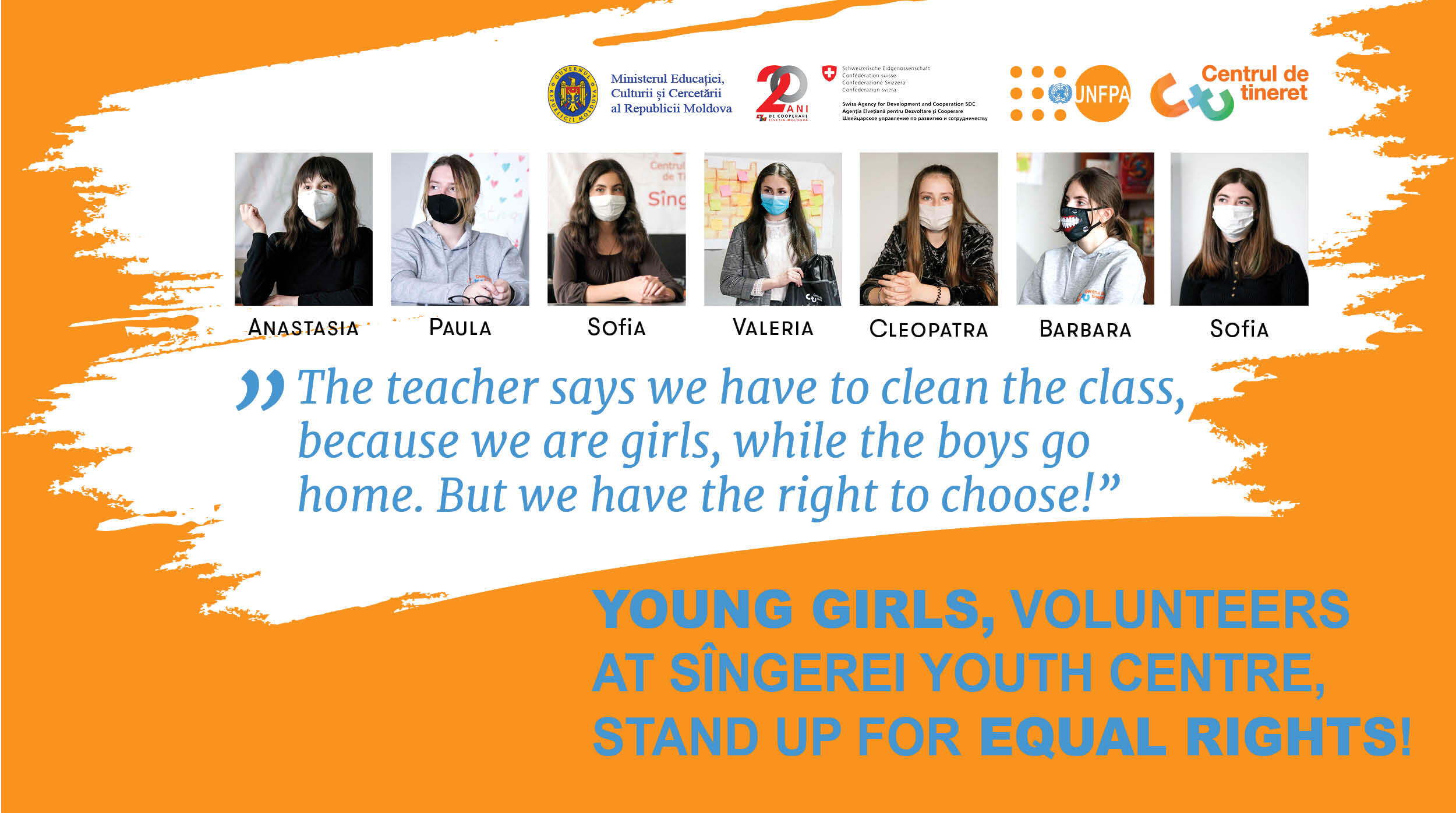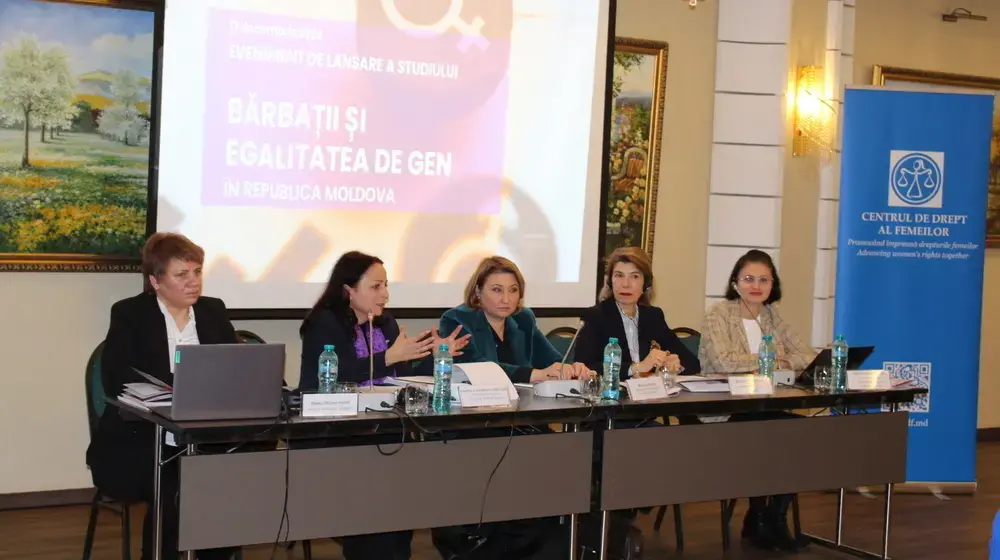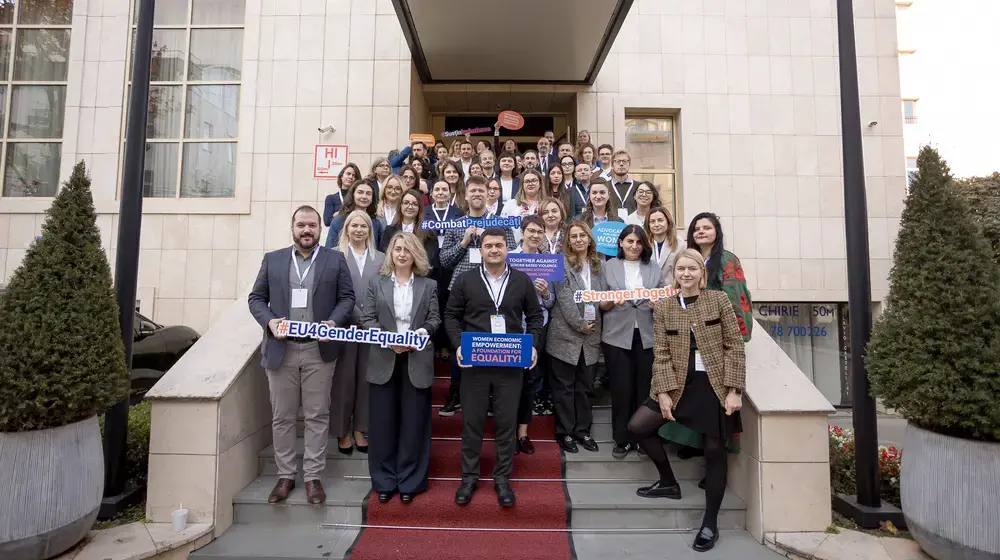‘We are middle school students. During one of the lessons, the teacher said: ‘Boys should solve this problem easily’. As a girl, I have always tried to be the first one to solve the problem, to prove that girls are not worse than boys’, Violeta.
‘One evening, I have heard someone screaming. I went out and saw my neighbour holding a wooding stick in his hand while threatening a woman. He got stuck when saw me. I called the police first and then told my father about all this situation’, Ana.
‘My classmate was harassing me – he was cracking little, but constant jokes. At some point, I could not stand it anymore and I asked my parents and teachers for help’, Cristina.
‘There are cases when the husband drinks and the wife wants to stop him. If she takes the bottle from his hand, he gets upset and beats her. As a child, you are supposed to remain silent, as this is your parents’ house and the only thing you can do is to put up with it. When you grow up, do whatever you want’, Andreea.
*the names of girls telling their life experiences have been changed for anonymity
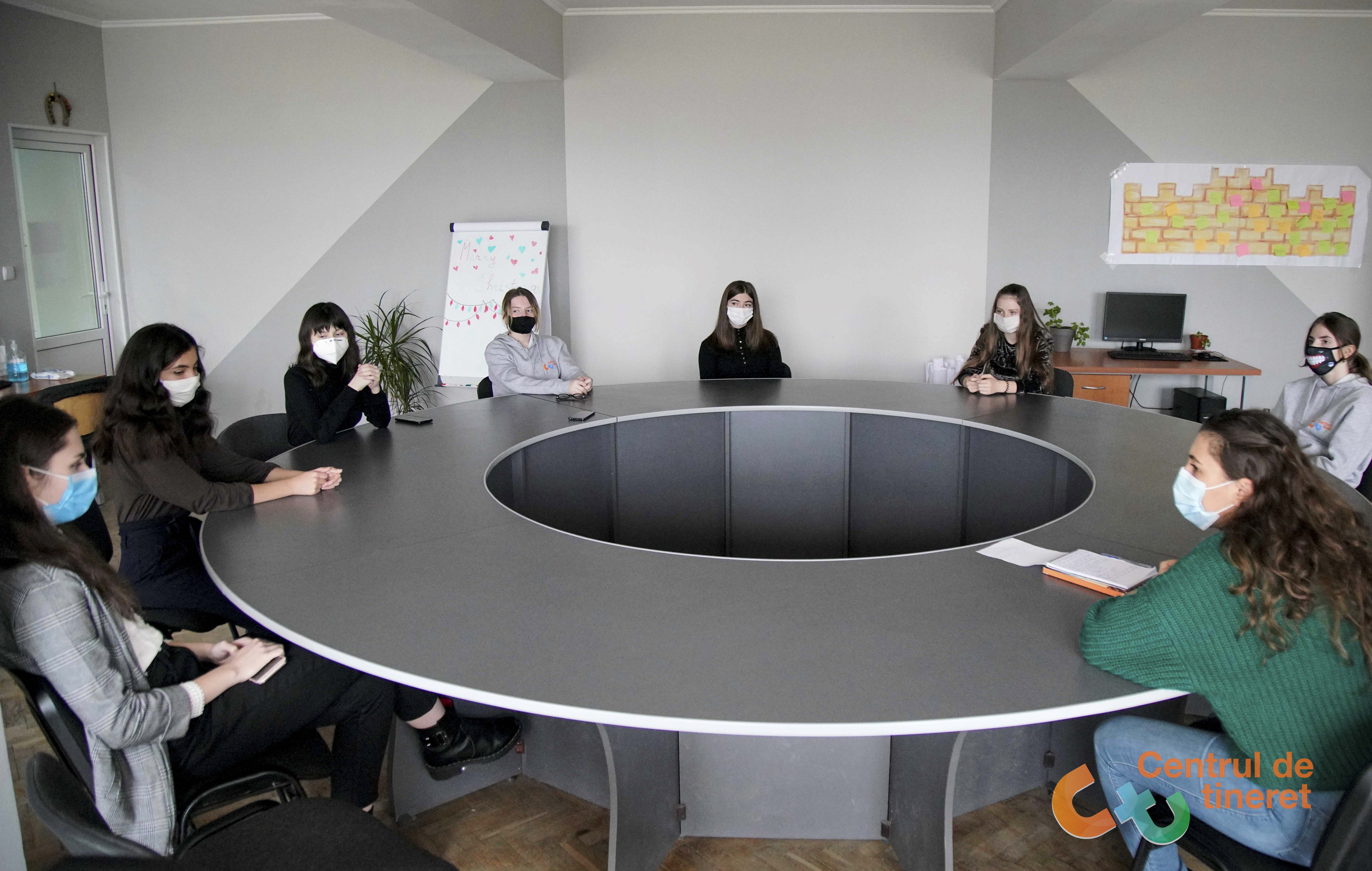
The interview with young women volunteers at Singerei Youth Center
The experiences of some women and girls motivated these nine young ladies, volunteering at Sangerei Youth Center, to launch some activities meant to attract people’s attention on gender-based violence, in their district and across the whole country.
The young ladies started a campaign to promote the rights of girls and women. To organise the first event that took place this fall in Sangerei, the girls came up with a plan, shared tasks among them and used art to convey the same message – the woman is strong and the woman has the right to respect and to be respected.
‘We got this idea at the beginning of the summer when we realised that our country faces so many cases of physical, sexual and emotional violence. Therefore, we decided to raise awareness among people and, by means of art, we showed the problems that women are currently going through’, Sofia Codreanu.
‘We worked in teams. Valeria and Maria took care of the paintings; I, Mirela, Sofia and Cleopatra performed a stage show; Sofia realised an animation, and Nastea – a photographic exhibition. I created and registered a song dedicated to women, and Barbara coordinated all teams’, Paula Luchian.
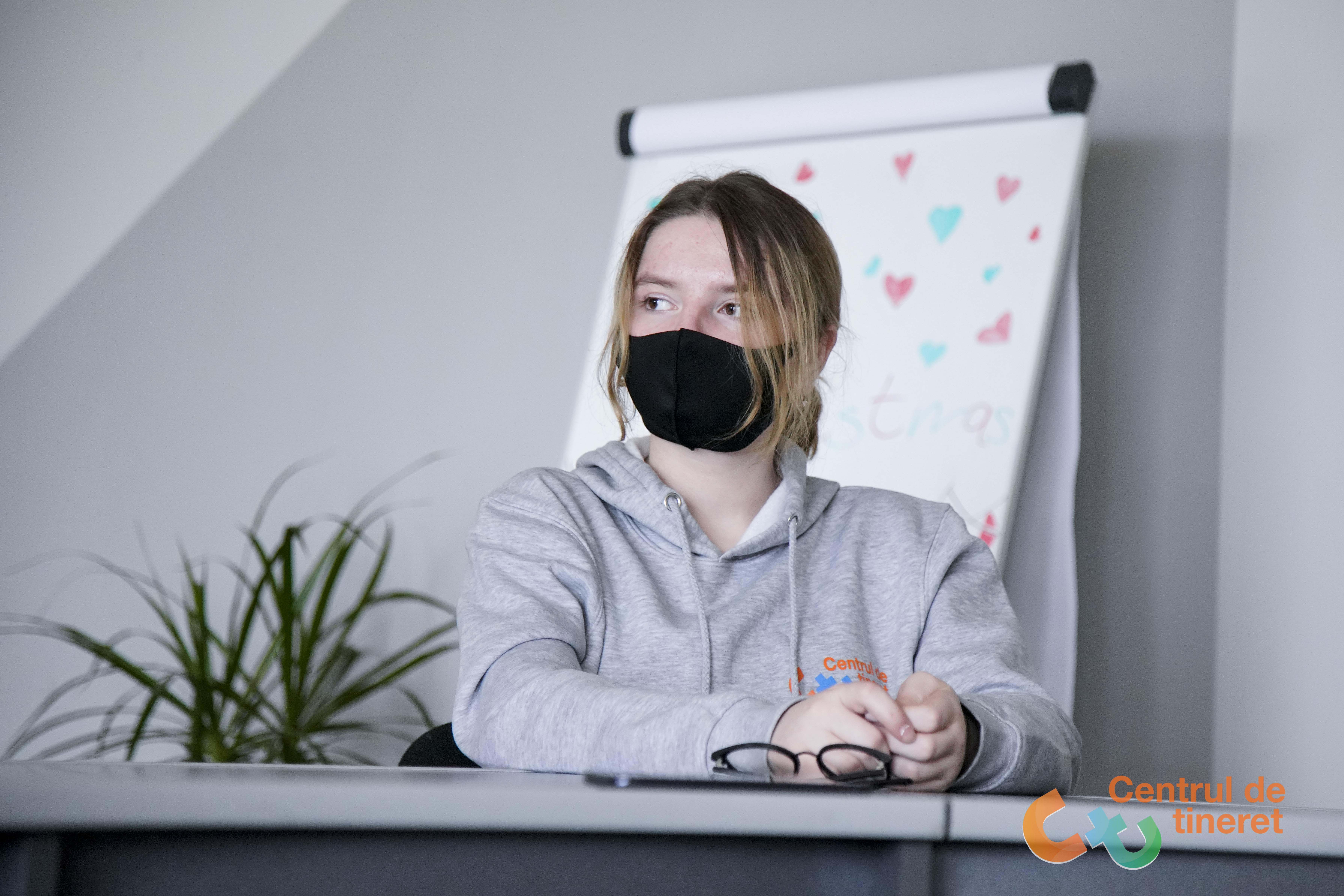
Paula Luchian, volunteer at Singerei Youth Center
‘So many women are subject to violence, and we, as women to be, do not want this to continue. We have organised this event to touch people’s souls and to promote the idea that women are not toys to do whatever you want with’, Cleopatra Turcan.
Following the event that was attended by 40-50 people, the girls received only positive feedback, and the representatives of local public administration encouraged them to also organise such gender-based violence prevention activities in the villages of Sangerei district.
Stereotypes are very common in families both in villages and towns. Very few people heard about equality and sharing tasks. Actually, more people share the idea that ‘the unbeaten wife is like an unlocked mill’; if he beats you, he loves you’; I made you, I kill you’, which are good reasons for expressing a harmful, discriminatory and violent behaviour.
‘Judging by stereotypes, women have to look after children, cook, clean, and to obey their husbands. But judging by rationality, I do not share the idea that women and men have to play a certain role. Both women and men have to do whatever they want to do’, Anastasia Viziru.
‘Such stereotypes aim at ‘transmitting’ that patriarchy dominates. I think these are only expressions invented to justify and amplify men’s power and make women feel inferior, not able to oppose, to object or demand respect’, Sofia Codreanu.
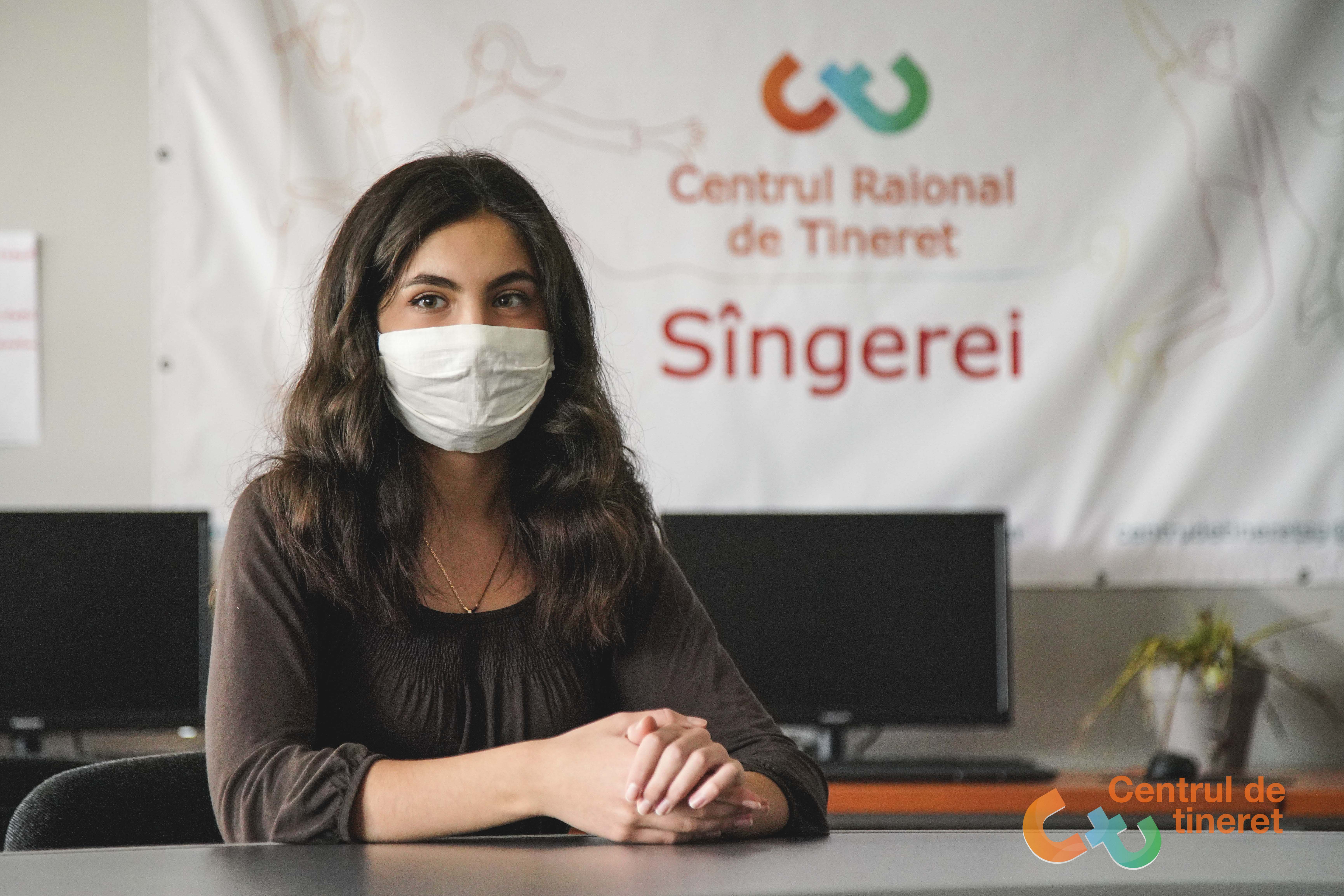
Sofia Codreanu, volunteer at Singerei Youth Center
The nine young ladies, interested in preventing and addressing violence against women, are just at the beginning of this journey and wish to know more about this subject and to carry out activities of greater and more positive impact on respect for women’s rights. Until then, they wish a violent and stereotype-free education to start as early as an elementary and middle school:
‘Most of the time, the teacher says that we need to clean up, as girls usually do that, while boys are allowed to go home. During some other activities, boys had to work outside, and girls in the classroom. This is not fair. There has to be gender equality and the right to choose’, Sofia Cojocaru.
‘There were cases in the middle school when girls had their bras pulled on or were touched against their will. Guys were laughing and cracking jokes, but girls felt uncomfortable, and nobody was saying anything. I remember another situation in school, when we got back to the locker room after physical education; guys opened the door and told us with some kind of disdain ‘hurry up’. It was unpleasant and humiliating’, Anastasia Viziru.
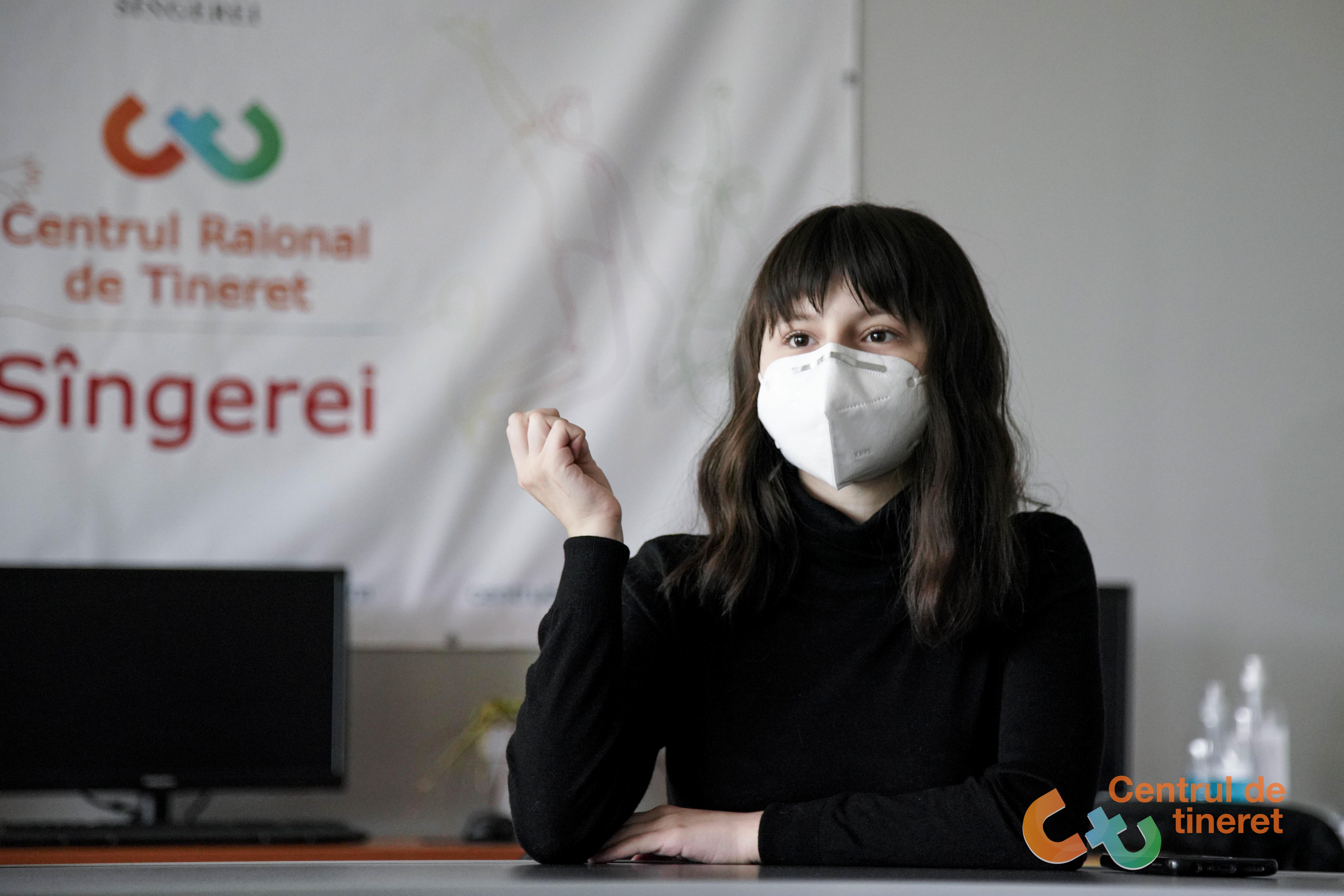
Anastasia Viziru, volunteer at Singerei Youth Center
‘I know from the discussions that some teachers think it is only natural for the woman to be in the kitchen, and the man to work outside the house and bring in money. However, some men like to cook and some women want to make more money and run businesses’, Valeria Bologan.
If violence could be ended in educational institutions or in any other public space, women and children, being by themselves in front of aggressors and problems, could handle them more easily. These young ladies know from real-life stories that domestic violence is the most widely spread:
‘Domestic violence is much more complicated to address. Parents always claim that they are the ones who look after you, feed you, therefore you cannot even come up with a piece of advice or resist. Mothers (women) go through the same situation when subjected to violence’, Sofia Cojocaru.
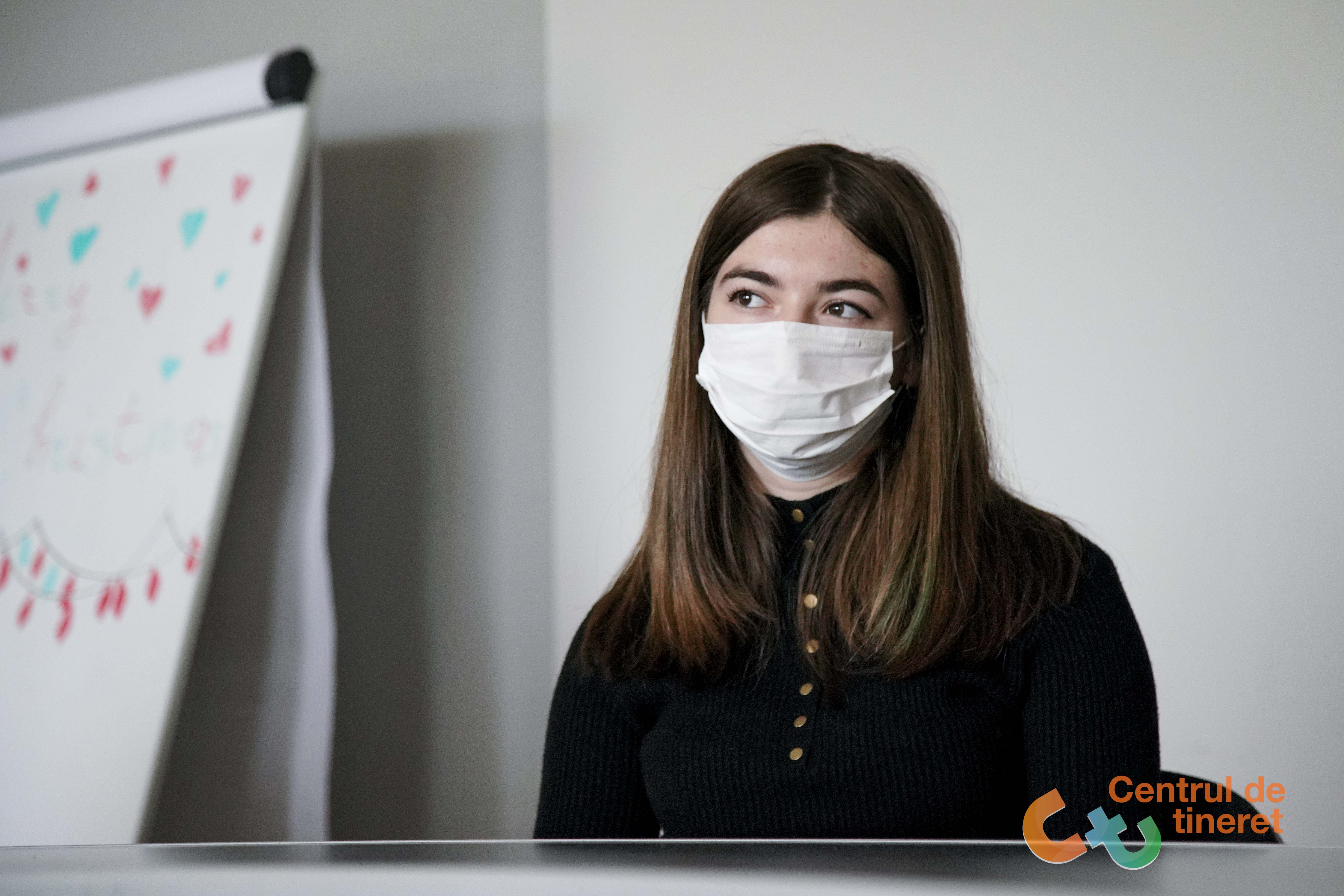
Sofia Cojocaru, volunteer at Singerei Youth Center
‘When parents sense that their children are too stressed or physically and emotionally abused, they have to ask for help. Women face this kind of situation more frequently. Violence does not only affect women, it also affects children. A child that has been raised in violence, is marked for life. There are cases when the woman decides to leave, but neighbours and relatives convince her to stay and put up with all this, and, finally, she gives up’, Anastasia Viziru.
As every generation develops differently, the nine girls consider it necessary for the young people to get better knowledge in the field of emotional intelligence: to learn how to react in a specific situation, to know when to remain silent so to avoid a conflict, to understand that people are free to do whatever they like and to realise that violence is caused by weaknesses, not power:
‘Violence is the will to prove superiority. It is caused by the fear of seeming inferior, the lack of love and compassion; people use it for fun or due to the lack of education. When a child is raised by a family where members talk nicely to each other, this child will become a well-educated adult’, the girls stated.
‘We do not know how to control our emotions and we lack emotional intelligence, as we react badly to every single impulse’, Anastasia Viziru.
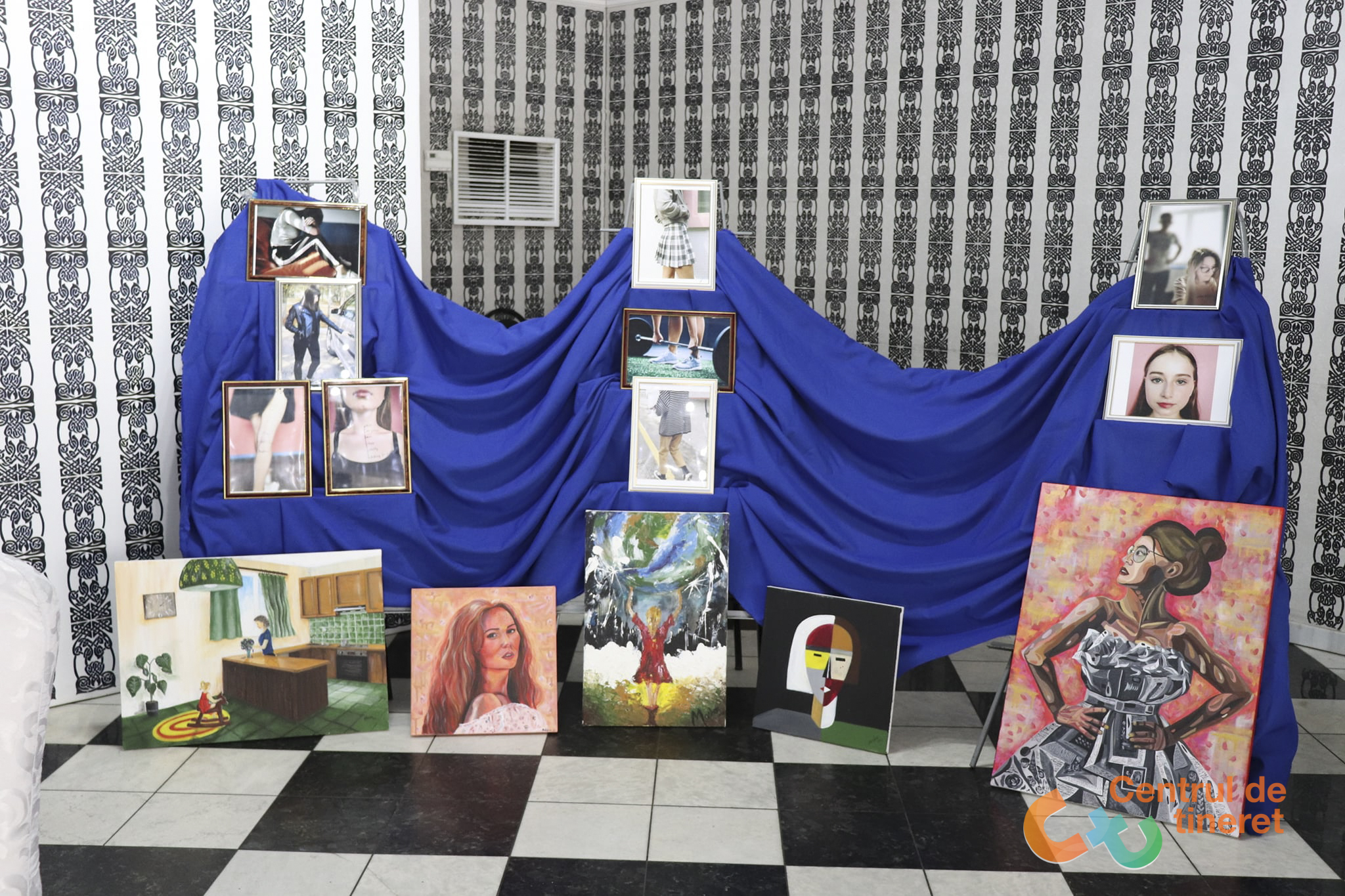
Exhibition organised by young women, volunteers at Singerei YC
Both during the campaign for the promotion of girls’ and women’s rights and during other activities organised at the center, the team of the nine girls gets supported by Olesea Luchian, director of Sangerei Youth Center:
‘Following the forum in Sangerei, we did not stop our activity – we went to Balasesti and Alexandreni and organised workshops meant to inform people about preventing youth violence. When young people start realising at a young age what is good and what is bad, they understand life differently. I was so happy when girls started understanding that they too are important and have to show some self-respect’.
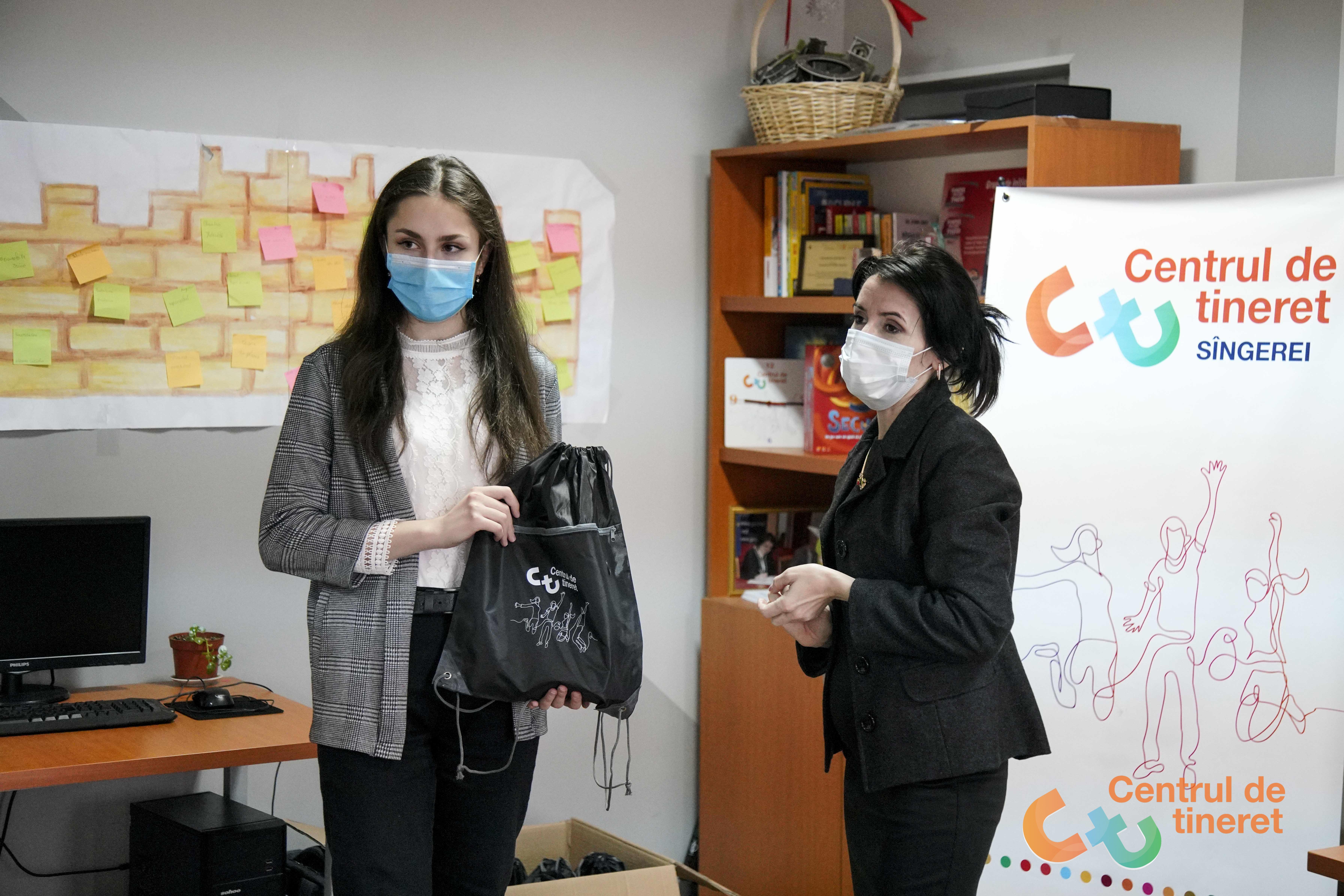
Valeria Bologan, volunteer Singerei Youth Center & Olesea Luchian, manager at Singerei YC.
Paula, Sofia, Nastea, Valeria, Cleopatra, Sofia, Maria, Barbara and Mirela state that they will continue to promote positive values and non-violent behaviours. The young ladies take action when it comes to what is happening around them and to what they think it is not fair to the other girls and women:
‘There is this girl in our classroom who is shy and talks to no one. Some guys and girls bully her. Together with other colleagues, we tried to explain to them that this is a bad thing to do’, Cleopatra Turcan.

Cleopatra Țurcan, volunteer at Singerei Youth Center
‘I am more of an introvert person. Intervening is not my strong suit. But I would ask for help if something bad is happening to me. When my friend has been subjected to harassment, I encouraged her to ask for help too, and not to tolerate such actions’, Sofia Codreanu.
‘In the middle school, I was afraid of intervening when a girl was beaten, touched or harassed. But now, if I see something I disagree with, I take action immediately. With time, I started understanding that nothing good will come out of remaining silent’, Anastasia Viziru.
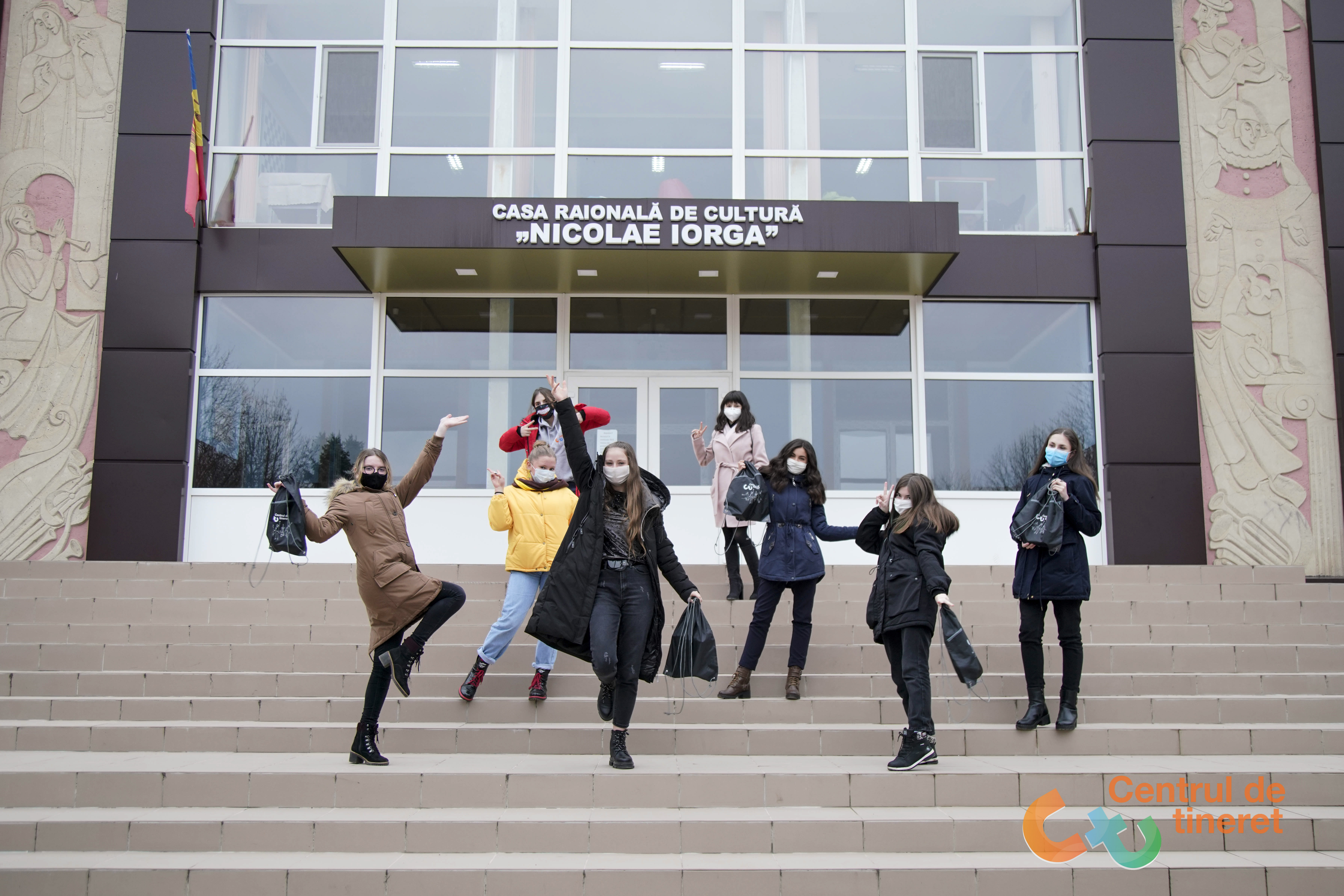
Photographs: Youth Media Center
Product developed by Youth Media Center, under the Joint Fund for the development of Youth Centers and strengthening participation and civic engagement among young people of the Ministry of Education, Culture and Research, the Swiss Agency for Development and Cooperation and the United Nations Population Fund.

